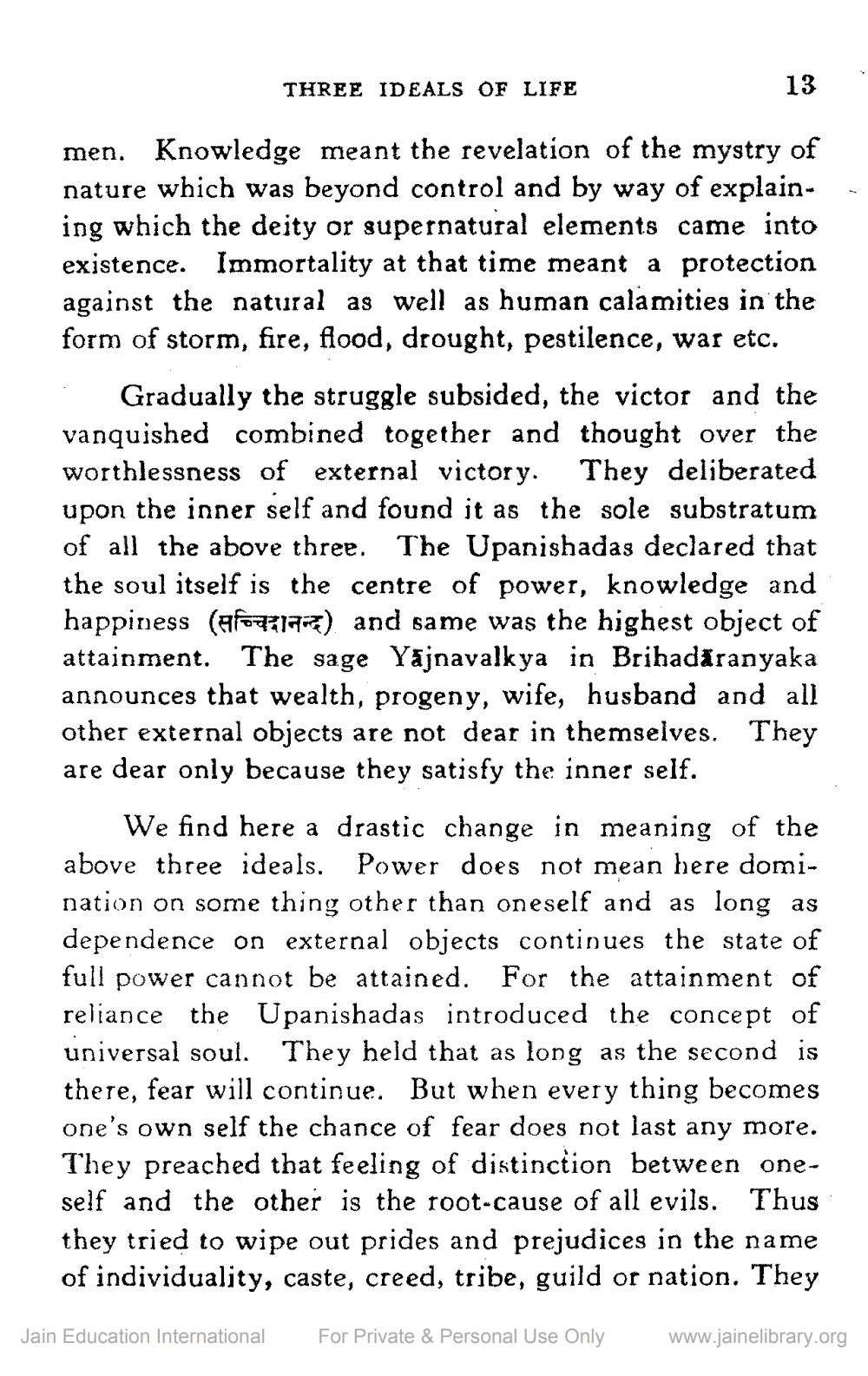________________
THREE IDEALS OF LIFE
13
men. Knowledge meant the revelation of the mystry of nature which was beyond control and by way of explaining which the deity or supernatural elements came into existence. Immortality at that time meant a protection against the natural as well as human calamities in the form of storm, fire, flood, drought, pestilence, war etc.
Gradually the struggle subsided, the victor and the vanquished combined together and thought over the worthlessness of external victory. They deliberated upon the inner self and found it as the sole substratum of all the above three. The Upanishadas declared that the soul itself is the centre of power, knowledge and happiness (f) and same was the highest object of attainment. The sage Yajnavalkya in Brihadaranyaka announces that wealth, progeny, wife, husband and all other external objects are not dear in themselves. They are dear only because they satisfy the inner self.
We find here a drastic change in meaning of the above three ideals. Power does not mean here domination on some thing other than oneself and as long as dependence on external objects continues the state of full power cannot be attained. For the attainment of reliance the Upanishadas introduced the concept of universal soul. They held that as long as the second is there, fear will continue. But when every thing becomes one's own self the chance of fear does not last any more. They preached that feeling of distinction between oneself and the other is the root-cause of all evils. Thus they tried to wipe out prides and prejudices in the name of individuality, caste, creed, tribe, guild or nation. They
Jain Education International For Private & Personal Use Only
www.jainelibrary.org




